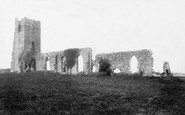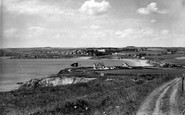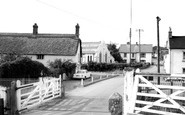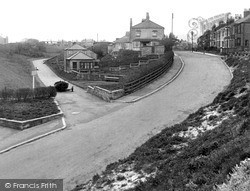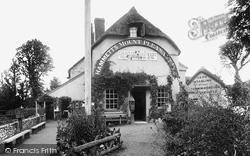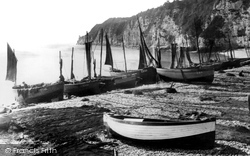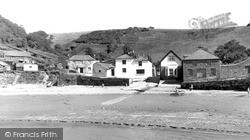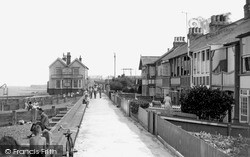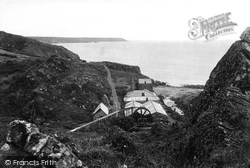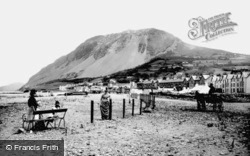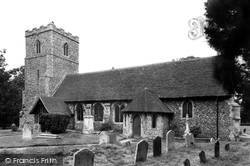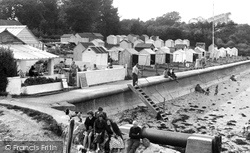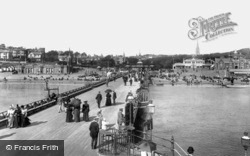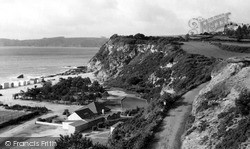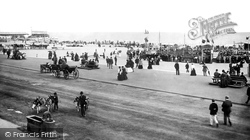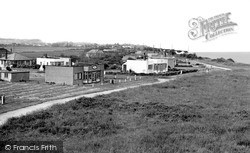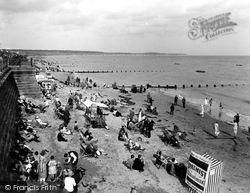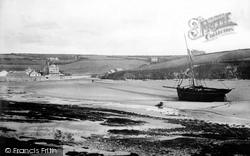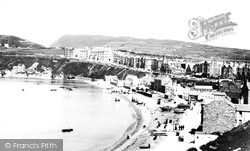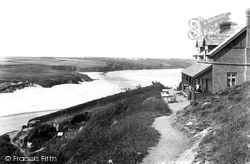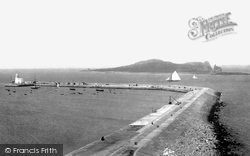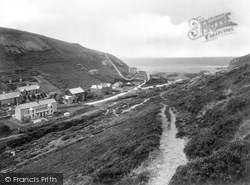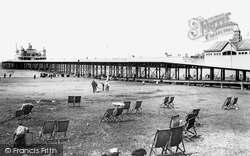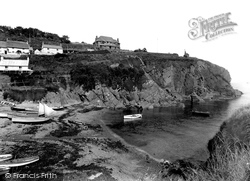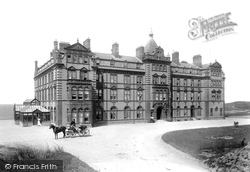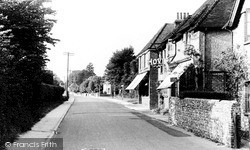Places
1 places found.
Those places high-lighted have photos. All locations may have maps, books and memories.
Photos
11 photos found. Showing results 481 to 11.
Maps
4 maps found.
Books
1 books found. Showing results 577 to 1.
Memories
1,362 memories found. Showing results 241 to 250.
The Shack
We as a family stayed in what we called 'the shack', it was situated next to the Amroth Arms. The shack was on a large piece of land. A stream ran through the grounds, it went under the road into the sea, and often when the tide was high it ...Read more
A memory of Amroth in 1988 by
The Ryse
My Grandmother lived in Yew Tree Cottage, The Ryse Hatfield Heath with Bob Challis. I was a little girl growing up in London, and would visit at Weekends and school holidays. Uncle Bob was a stockman on the farm but later due to ill ...Read more
A memory of Hatfield Heath in 1965 by
The Runnacleave Hotel
The Runnacleave hotel was a seasonal base camp for me from 1967 until 1970. I worked as a waiter, and had so much fun in working there. I remember the Thursday night dance with Anita and Al doing the Cha-cha-cha fab. I ...Read more
A memory of Ilfracombe by
The Rubble On The Beach
I spent my teenage years in Dunwich, and in retrospect they were wonderful. Freedom, long walks, the beach and sea, cliffs, marshes and the old tank defences from WWII. My best friend Justin North, who lived at 'Marshside' ...Read more
A memory of Dunwich in 1966 by
The Rock House Hotel & The Huts
My memory of the Rock House Hotel is very particular and rooted in the period 1973-1980 My stepfather's family owned the White House across the paddock field from the Rock House Hotel. The gate from The Huts & Boat ...Read more
A memory of Thurlestone by
The Railway Inn
This is a photograph of the railway crossing gate, the line has been long closed (blame Dr Beeching!) The white building on the right is the Culm Valley Inn, prev The Railway Inn. My father Sydney Dennis was licensee, my brother was ...Read more
A memory of Culmstock in 1948 by
The Railway Children
During the war years in 1940, we moved from Doncaster to Rossington. My father worked on the railway and felt we would be safer in the country. We lived at 254 Gatehouse Crossing and later in 1948, at 383 Gatehouse, Bessacarr. ...Read more
A memory of Finningley in 1940 by
The Railway At Heacham
My father had holidays in Heacham in the 1920s. I visited as a young boy in the 1950s staying in an old railway carriage on the beach side of the station. My favourite activity was sitting by the station and watching the trains, ...Read more
A memory of Heacham in 1954 by
The Pines
What is now The Pines garden was a small holding to Miss Upjohn, she kept chickens, pigs and goats. I worked for her for about 2 years, walking from Deal each day. Most days I would take the goats (nannys) down to the beach with ...Read more
A memory of St Margaret's Bay in 1952 by
The Pier And Esplanade
I was born in Sudley Road nursing home, Bognor, and we lived in Nyewood Lane, but I used to stay frequently with my grandmother in her flat a couple of hundred yards from the Royal Norfolk Hotel. One of my earliest ...Read more
A memory of Bognor Regis in 1946 by
Captions
1,130 captions found. Showing results 577 to 600.
This is the seaward end of the High Street, which runs down onto the beach. In an earlier period this area included beautiful sheltered gardens and a bandstand.
Mount Pleasant Inn still stands above the marshlands of Dawlish Warren, though it has changed somewhat since this photograph was taken.
This picturesque locality has always attracted the eye of artist and photographer. One Victorian guide book writer described Beer as 'a rare subject for the pencil'.
The white building close to the beach is the Rashleigh Arms; just to the right is a short slipway up to the old lifeboat house, which was used until 1922 but is now converted to a café and shop.
These trim houses with their first-floor verandas overlooking the shingle beach and breakwaters, and the neat gardens behind their fences, present an almost idyllic seaside vista.
Lying to seaward of Poltesco, the rocky little beach of Carleon Cove had its own pilchard fleet until the 19th century, when it became the home of the Lizard Serpentine Company.
Are the ladies conscious of the camera? This marvellous image encapsulates the changes taking place in Llanfairfechan and similar villages at this time.
Freston is well known for the Freston Elizabethan tower overlooking the estuary, the Boot public house, and the parish church.
A closer view of the group in the previous photograph reveals them relaxing on the slipway.
Less than a century after its foundation, the town was already dominating the skyline and its beaches were among the most crowded on the south coast.
Tennis courts, a café and beach huts are situated on the sands reclaimed from the sea beneath the cliffs; down them the steep access lane descends to the Riviera Club.
The promenade is pictured in its late 19th century heyday. Promenaders are attired in the latest fashions, with no gentlemen being seen without his cane or umbrella.
These superior chalets are on the sand-dunes above the beach; as estates like this are privately-owned, the roads are usually not made up.
Ice cream and tea are for sale further along the beach. The stall in the centre seems to be selling bottled drinks and perhaps biscuits.
This schooner may well have been unloading limestone, which was shipped from South Wales to be fired in the lime-kiln that still stands at the side of the beach.
The cottages and buildings along the beach belong to the earliest settlement, while the later Victorian developments are strung out along the higher ground.
This uninterrupted view out over the lower Gannel estuary and the golden sands and dunes of Crantock confirms why Pentire became popular in the early days of housing development on the western outskirts
A final view looking around the sweeping east pier of Howth harbour to the lighthouse.
Another ex-mining settlement, Porthtowan became a popular destination for day-trippers from Redruth around the turn of the century.
This picture of the new pier was taken shortly after it opened. The trackway used in its construction can still be seen on the beach.
The rugged nature of the cliffs is typical of the Cornish coastline, where at low water level jagged rocks continue to cause hazards to the unwary mariner.
Opened in June 1900, the immense hotel block dominates Fistral Beach on the edge of Newquay. A horse and open carriage are about to take guests on an excursion.
This isolated church near a beautiful beach was probably established during the 6th century, but not built in stone until after 1300.
All along the coastal belt, but rarely extending more than a few miles inland, rounded beach flints or cobbles were used for walls and every type of building.
Places (1)
Photos (11)
Memories (1362)
Books (1)
Maps (4)



